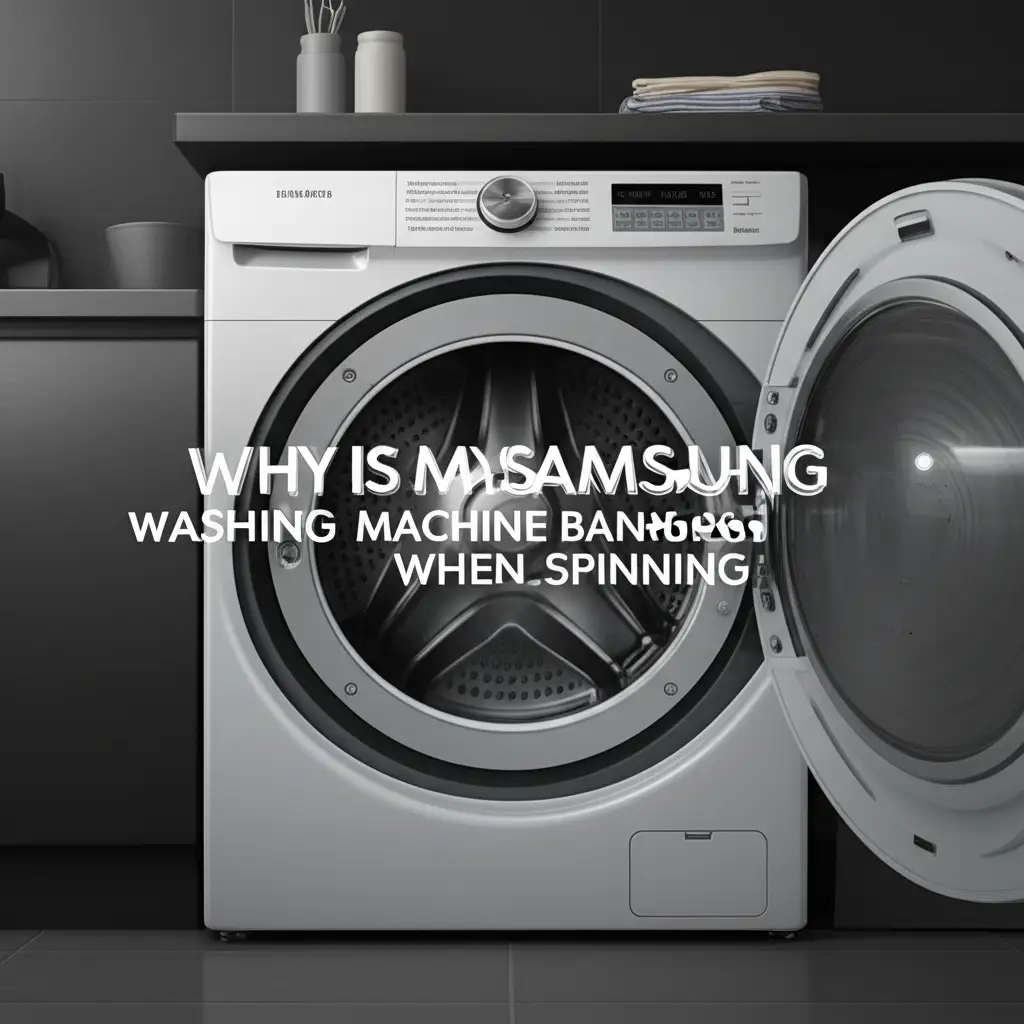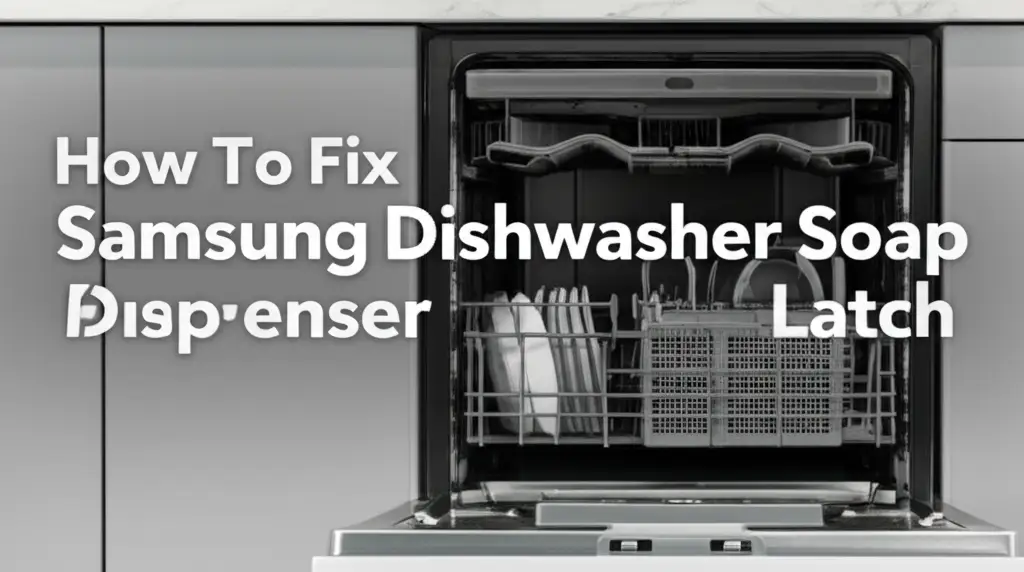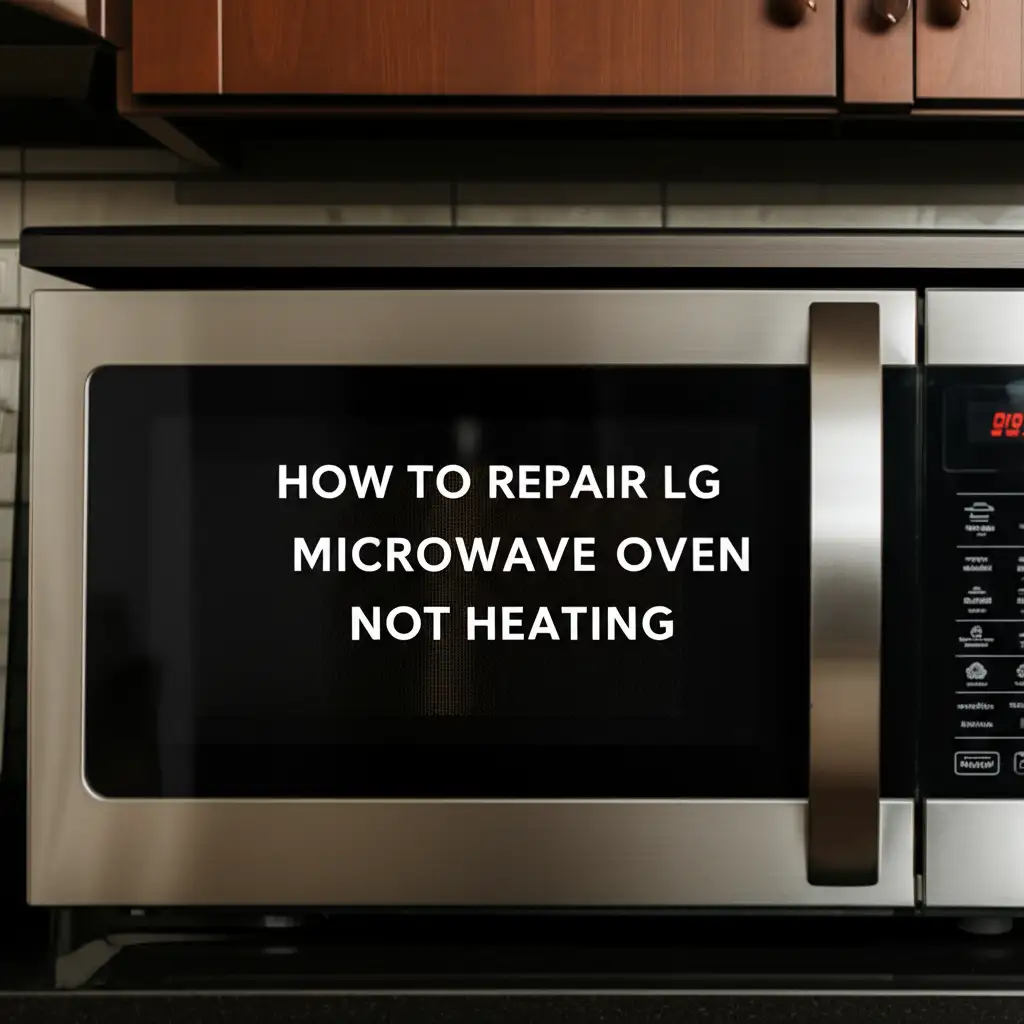· Katria Melrose · Home Appliances · 19 min read
Why Is My Samsung Washing Machine Banging When Spinning

Fix Your Samsung Washing Machine’s Banging Spin Cycle
That loud banging noise from your Samsung washing machine during the spin cycle can be alarming. It often signals a problem, but it does not always mean big trouble. You might just need to make some simple adjustments. I remember feeling worried the first time my washer started thumping loudly.
This article will help you understand why your Samsung washing machine is banging when spinning. We will look at common reasons like unbalanced loads or worn-out parts. You will learn how to troubleshoot these issues step-by-step. Let us get your laundry routine back to quiet operation.
Takeaway
- Check Load Balance: Always distribute clothes evenly in the drum.
- Inspect Leveling: Ensure your washing machine sits perfectly level on the floor.
- Look for Foreign Objects: Small items can get stuck and cause noise.
- Examine Suspension Components: Worn shock absorbers or suspension rods need replacement.
- Address Bearing Issues: Loud grinding often points to failing drum bearings.
Your Samsung washing machine bangs when spinning usually due to an unbalanced load, improper leveling, or worn mechanical parts such as shock absorbers, suspension rods, or drum bearings. Addressing these issues often resolves the noisy spin cycle. Inspecting these components carefully can help identify the exact cause.
Unbalanced Load or Improper Leveling: Common Causes
A common reason for a Samsung washing machine banging when spinning is an unbalanced load. Imagine putting all your heavy towels on one side of the drum. As the machine spins faster, this uneven weight causes the drum to wobble violently. The drum then hits the inside walls of the machine, creating a loud banging sound. This happens often with bulky items like blankets or heavy jeans.
Another frequent culprit is an unlevel washing machine. Your Samsung washer needs to sit perfectly flat on the floor. If one leg is shorter, the entire machine will rock during the spin cycle. This rocking motion turns into a powerful shake. The shaking causes the drum to strike the machine’s frame. You can usually check this by gently pushing on the corners of the machine. If it wobbles, it is not level.
Redistributing the Laundry Load
Fixing an unbalanced load is simple. When your Samsung washing machine starts to bang, pause the cycle immediately. Open the lid or door. Then, manually redistribute the clothes inside the drum. Spread them out evenly around the central agitator or across the drum for front-loaders. You want the weight to be balanced.
For large items like comforters, wash them alone or with only a few small items. This prevents them from clumping together. Remember, overloading your machine also contributes to imbalance. A too-full drum cannot distribute weight properly. Always follow the manufacturer’s guidelines for load size. This simple step can prevent many banging incidents.
Adjusting Washing Machine Leveling Feet
Making sure your Samsung washing machine is level is crucial for quiet operation. First, locate the leveling feet at the bottom of your machine. Most washers have four adjustable feet. You will need a wrench or pliers for this task. Carefully tilt the machine back or to the side if needed to access the feet.
Turn the adjustable feet clockwise to raise a corner or counter-clockwise to lower it. Place a spirit level on top of your washing machine to check its balance. Adjust each foot until the bubble in the level is perfectly centered. Once level, ensure the lock nuts on the feet are tightened. This prevents them from moving out of adjustment during operation.
Foreign Objects Trapped in the Drum or Pump
Sometimes, a loud banging noise comes from something unexpected. Small items can escape pockets or fall out of clothing. Coins, keys, pens, or even small toys are common culprits. These items can get lodged between the inner and outer drums. When the drum spins at high speeds, these trapped objects bounce around.
This creates a distinct metallic or hard banging sound. It sounds different from a general imbalance. The sound might be intermittent, only occurring when the object shifts position. Before you panic about major repairs, always check for these rogue items. They are surprisingly common.
Checking for Trapped Items
To check for foreign objects, first unplug your Samsung washing machine for safety. This is a crucial step before any inspection. For a top-loader, simply look inside the drum. Use a flashlight to illuminate the area under the agitator. You might need to gently rotate the inner drum to see all around. You can often see or feel the object there.
For front-loaders, the process is similar. Open the door and inspect the space between the rubber gasket and the drum. Small items often get caught here. You might also need to check the drain pump filter. This filter traps debris before it enters the pump. Refer to your Samsung washer’s manual to find and clean this filter. Cleaning the filter is good general maintenance too. Learn how to clean your Samsung washing machine filter for top loaders.
Removing Debris from the Drain Pump Filter
If you suspect a foreign object in the drain pump, locate the filter. On most Samsung models, this is behind a small access panel at the bottom front of the machine. Place a shallow pan or towels underneath to catch any residual water. This water will leak out when you open the filter. Slowly twist the filter counter-clockwise to remove it.
Once removed, inspect the filter and the housing for any trapped debris. Remove any coins, lint, or other items you find. Clean the filter thoroughly under running water. Rinse it until it is free of all gunk. Reinsert the filter and twist it clockwise until it is snug. Close the access panel. This simple check can save you a service call. You can also find general tips on how to clean your washing machine filter here.
Worn Out Suspension System Components
The washing machine’s suspension system is vital for absorbing vibrations. It keeps the inner drum stable during high-speed spins. This system typically includes components like shock absorbers or suspension rods. Shock absorbers dampen the drum’s movement. Suspension rods hold the drum in place while allowing vertical movement.
Over time, these parts wear out. The dampening fluid in shock absorbers can leak. Springs on suspension rods can weaken or break. When these parts fail, the drum loses its stability. It starts to move excessively during the spin cycle. This uncontrolled movement causes the drum to violently hit the washer’s casing, leading to that loud banging.
Inspecting Shock Absorbers
Shock absorbers are usually found at the bottom of the washing machine. They connect the outer tub to the base frame. You will need to carefully tilt the washer back or lay it down to access them. Look for signs of wear. Check for oil leaks around the piston rods. This indicates a failed seal. Also, check the mounting points.
If you push down on the tub, it should feel firm and return slowly. If it bounces easily or feels loose, the shock absorbers are likely worn. You can test each shock absorber by pushing and pulling its rod. There should be firm resistance. If one moves too easily compared to others, it needs replacement. You usually replace them in sets for best performance.
Checking Suspension Rods and Springs
Suspension rods are common in top-loading Samsung washers. They are usually four rods, one at each corner. They extend from the top of the outer tub to the top frame of the washer. To check them, lift the main top panel of your washer. You can usually do this by prying clips or removing screws. The rods will be visible.
Inspect each rod for any signs of damage or wear. Look for bent rods, broken springs at the top or bottom, or a lack of tension. Gently push down on the tub. It should spring back smoothly. If one corner sags or moves unevenly, that rod is likely faulty. Replace all rods if one is bad. This ensures balanced support.
Damaged or Worn Drum Bearings
Another serious cause of a Samsung washing machine banging when spinning is damaged drum bearings. Bearings allow the inner drum to rotate smoothly and quietly. They are located at the back of the outer tub, supporting the drum shaft. Over time, water leaks, or simply age can cause these bearings to wear out.
When bearings fail, the drum no longer spins true. It wobbles or grinds. This creates a distinct, loud grinding or roaring sound during the spin cycle. The banging might be the drum wobbling enough to hit the outer tub. This is a more complex repair. It often requires significant disassembly of the machine.
Diagnosing Worn Bearings
To check for worn drum bearings, first unplug the washing machine. Open the door or lid. Grab the inner drum and try to move it up, down, and side to side. You should feel very little play or movement. If the drum wiggles significantly or you hear a grinding noise as you move it, the bearings are likely bad.
You can also try rotating the drum by hand. It should spin smoothly and quietly. If you hear a rough, grinding, or roaring sound, it confirms bearing failure. Sometimes, the noise starts subtly and gets worse over time. This indicates progressive wear. Replacing these bearings often means disassembling the entire outer tub.
Replacing Drum Bearings (Professional Help Recommended)
Replacing drum bearings is a challenging repair. It often involves removing the inner drum, heater, and sometimes splitting the outer tub. Special tools may be needed. Because of the complexity, this repair is usually best left to a professional appliance technician. They have the experience and tools.
Attempting this repair yourself without proper knowledge can lead to further damage. It can also void your warranty. If your Samsung washing machine is still under warranty, contact Samsung service first. Even if not, consider the cost of parts versus a new machine. A professional opinion can help you decide.
Counterweights Loose or Broken
Washing machines, especially front-loaders, use heavy concrete or cast-iron counterweights. These weights are bolted to the outer tub. They help balance the drum’s weight. This balance is crucial during the spin cycle. It prevents excessive vibration and movement. Without them, the drum would shake violently.
Over time, the bolts holding these counterweights can loosen. The weights themselves can also crack or break from constant vibration. When a counterweight becomes loose, it moves freely. This movement causes a loud banging noise against the washer frame or outer tub. It can sound very alarming.
Locating and Inspecting Counterweights
To inspect the counterweights, you will need to access the outer tub. This usually involves removing the top panel and sometimes the front or back panel of your Samsung washing machine. For front-loaders, you often find one at the top and one or two at the bottom front. For top-loaders, they are usually bolted to the side of the tub.
Once you gain access, visually inspect each counterweight. Check if they are securely bolted. Try to gently wiggle them. If they feel loose, tighten the bolts. If you see any cracks or pieces broken off, the counterweight needs replacement. A broken counterweight cannot perform its job.
Re-securing or Replacing Counterweights
If you find loose counterweights, use a wrench to tighten the bolts. Make sure they are very snug. Use Loctite or similar thread-locking fluid on the bolts if recommended by your washer’s manual. This prevents them from loosening again from vibration. Do not overtighten, as this could strip the bolts or crack the weight.
If a counterweight is cracked or broken, you must replace it. Order the exact replacement part for your Samsung model. Installation usually involves unbolting the old one and bolting on the new one. This task can be heavy. Seek help if the weights are too heavy to manage alone. Ensuring stable counterweights will significantly reduce banging.
Motor and Drive System Issues
While less common for direct banging, problems with the motor or drive system can indirectly cause a loud noise during the spin cycle. The motor powers the drum’s rotation. The drive system, which might include a belt, pulley, or direct drive mechanism, transmits this power. If any part of this system is faulty, it can affect the drum’s operation.
For instance, a worn drive belt might slip and cause jerky movements, leading to banging. A failing motor could cause erratic spin speeds or uneven rotation. These issues can result in the drum vibrating irregularly and hitting the casing. It might not be a direct “banging” but an abnormal operation that causes the drum to strike.
Checking the Drive Belt (If Applicable)
Many Samsung washing machines use a drive belt to transfer power from the motor to the drum. You will need to access the back panel of your washer. Unplug the machine first for safety. Remove the screws securing the back panel and lift it off. You will see the motor, the large pulley on the drum, and the belt connecting them.
Inspect the drive belt carefully. Look for signs of wear, fraying, cracks, or excessive looseness. A stretched or damaged belt can slip during high-speed spins. This causes the drum to spin erratically or not at all. If the belt looks worn, replace it. Ensure the new belt is properly tensioned according to the manual.
Inspecting the Motor and Pulley
While the back panel is off, also inspect the motor and the pulley attached to the drum. Check the motor for any visible damage or signs of overheating. The motor should be securely mounted. The pulley should be firmly attached to the drum shaft. Try to wiggle the pulley. If it’s loose, it could be causing imbalance.
If your Samsung washer is a direct-drive model, it does not have a belt. The motor connects directly to the drum. Diagnosing a direct-drive motor issue is more complex. It might involve testing electrical components. If you suspect a motor problem and your washer is direct-drive, it is often best to consult a professional. Problems with direct drive motors can cause significant vibrations.
Other Potential Causes and When to Call a Pro
Sometimes, the banging noise from your Samsung washing machine can be a combination of issues. Or, it might be something less common, like a problem with the tub mounting or the spider arm. The spider arm connects the inner drum to the shaft that goes through the bearings. If this arm corrodes or breaks, the inner drum can become loose. This leads to severe banging and grinding noises during the spin cycle.
Identifying such issues requires a deeper inspection. It often means disassembling major parts of the washing machine. While some users are comfortable with DIY repairs, more complex issues demand professional expertise. Knowing when to call a technician can save you time, frustration, and potential further damage to your appliance.
Tub Mounting and Spider Arm Issues
The outer tub in your Samsung washing machine is held in place by various mounts and bolts. If these mounts become loose or corrode, the entire tub can shift. This movement causes it to bang against the frame during spin. Inspect all visible mounting points around the outer tub. Tighten any loose bolts you find.
The spider arm is usually hidden at the back of the inner drum. It is a metal bracket that supports the drum. Over time, especially in humid environments, this part can corrode. Corroded arms can crack or break. When this happens, the drum is no longer properly supported. It will wobble violently and cause extreme banging. This is a significant repair. It often involves replacing the inner drum and spider arm assembly.
When to Seek Professional Assistance
You should call a professional appliance repair technician if:
- You have tried all the common fixes (unbalanced load, leveling, foreign objects) without success.
- The banging noise persists and seems to be coming from internal components.
- You suspect issues with the drum bearings, motor, or spider arm. These repairs are complex.
- You are uncomfortable with disassembling the washing machine yourself.
- The machine is still under warranty. DIY repairs might void it.
- The cost of parts for a DIY fix approaches the cost of a professional repair. A technician can give a clear estimate.
- You notice water leaks accompanying the banging. This might indicate more serious underlying issues. Discover more about why your Samsung washing machine might be leaking from the bottom.
A professional can accurately diagnose the problem and perform the repair safely. They have specialized tools and knowledge. They also carry common replacement parts. This speeds up the repair process. Do-it-yourself fixes are great for simple problems. Complex issues need expert hands. Learn more about general DIY washing machine repairs if you’re interested.
Proactive Maintenance Tips to Prevent Banging
Preventing problems is always better than fixing them. Regular maintenance can significantly extend the life of your Samsung washing machine. It can also prevent annoying issues like banging during the spin cycle. Simple habits in how you load and care for your machine make a big difference. I always advise my friends to follow these easy steps.
Good maintenance habits keep your washer running smoothly and quietly. They also help save on repair costs down the road. Taking a few minutes regularly can prevent future headaches. A well-maintained washing machine performs better and lasts longer.
Load Management Best Practices
Proper loading is the easiest way to prevent an unbalanced load. Here are some tips:
- Do not overload: Resist the urge to cram too many clothes into one cycle. Leave enough space for clothes to tumble freely. Overloading strains the motor and suspension. It also makes balancing difficult.
- Mix item sizes: Combine large, heavy items (like jeans or towels) with smaller, lighter items. This helps distribute the weight more evenly throughout the drum. Small items can fill the spaces between larger ones.
- Balance bulky items: If washing a single large item, like a blanket, add a few smaller towels to balance the load. Place them opposite the heavy item.
- Unfasten tangled clothes: Before starting the spin cycle, pause the machine if possible. Untangle any bunched-up clothes. This ensures even distribution during the final high-speed spin. This is a simple but effective step.
Regular Cleaning and Inspection
Keeping your Samsung washing machine clean and inspecting it regularly helps. It can prevent many issues, including banging.
- Clean the drum regularly: Use a washer cleaner or a mix of vinegar and baking soda. Run a cleaning cycle monthly. This prevents residue buildup that can cause imbalance. Here’s how to clean your Samsung washing machine thoroughly.
- Inspect the gasket: For front-loaders, regularly wipe down the rubber door gasket. Remove any small items or debris caught there. These items can cause noise if they get into the drum.
- Check pockets: Always check clothing pockets before washing. Remove coins, keys, and other small items. These are common culprits for getting stuck.
- Verify leveling: Every few months, re-check that your washing machine is level. Adjust the feet if needed. Floors can settle, causing a machine to become unlevel over time.
- Listen for changes: Pay attention to any new or unusual noises during cycles. Early detection of a small problem can prevent it from becoming a large, expensive one. A subtle change in sound can indicate wear.
FAQ Section
Q1: Can an unbalanced load permanently damage my Samsung washing machine?
A1: An unbalanced load itself usually does not cause permanent damage with a single occurrence. However, repeated instances can put excessive strain on internal components. It can prematurely wear out shock absorbers, suspension rods, and drum bearings. Addressing an unbalanced load quickly helps prevent long-term issues.
Q2: How much does it cost to fix a banging Samsung washing machine?
A2: The cost varies greatly depending on the cause. Simple fixes like leveling or removing foreign objects cost nothing. Replacing shock absorbers or suspension rods might cost $50-$200 for parts plus labor. Major repairs like drum bearings or a spider arm can be $300-$600 or more. Consider professional diagnosis for an accurate estimate.
Q3: Why does my Samsung top-loader bang more than a front-loader?
A3: Top-loaders can sometimes experience more noticeable banging with unbalanced loads. This is because the agitator creates a central point for clothes to clump around. Front-loaders tumble clothes more. Both types can bang due to worn suspension, but load distribution is key for top-loaders.
Q4: Can I use my Samsung washing machine if it’s banging?
A4: It is not recommended to use your Samsung washing machine if it is persistently banging loudly. Continued use can worsen the problem. It can lead to further damage to internal components. It could even cause the drum to break or detach. Identify and fix the issue before running more cycles.
Q5: Is a loud banging noise covered by my Samsung washing machine warranty?
A5: Warranty coverage depends on the specific cause of the banging. If it is due to a manufacturing defect or a component failure under normal use, it is likely covered. Damage from user error, like overloading, or from foreign objects is generally not covered. Always check your warranty terms and contact Samsung service.
Q6: How do I know if the banging is from the drum bearings or something else?
A6: Banging from drum bearings often comes with a distinct grinding, roaring, or squealing sound, especially during spin. You can also test by wiggling the drum: excessive play or a grinding sound when wiggling usually indicates bad bearings. Other issues like unbalanced loads or suspension problems tend to cause more of a “thumping” or “clunking” sound.
Conclusion
A Samsung washing machine banging when spinning is a common problem. It is often resolvable with some careful troubleshooting. We have explored the main culprits, from simple unbalanced loads and improper leveling to more complex issues like worn suspension components or damaged bearings. Taking the time to diagnose the specific cause is crucial for an effective fix.
Always start with the easiest solutions, like adjusting the load or leveling the machine. Then, move on to checking for foreign objects. Only then should you consider more involved repairs. Remember, regular maintenance is your best defense against these noisy issues. If you are ever unsure, or the problem seems too complex, do not hesitate to call a professional. Getting your Samsung washing machine back to quiet operation will make laundry day much more pleasant.
- Samsung washing machine repair
- washing machine banging noise
- spin cycle issues
- appliance troubleshooting
- DIY washing machine fix





